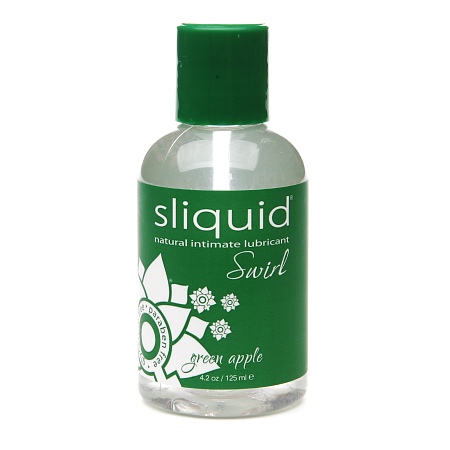
Loving couple holdind on the hands and sunset
The first time was a mistake. I swear it. I was young and foolish and I tell myself I didn’t know and didn’t mean it. But he was young and hard and lean and so afraid, dying at the rate of inches or feet per day. You could see the sickening pallor advancing across that beautiful face, his eyes deep and endless in pain and that afternoon fevers took him, his muscles taut and stretched in agony and he called her name over and over but the bitch had already left him, turned away like he was an overripe fruit, an over used thing, or maybe she just couldn’t handle his pain anymore, but he needed her and I was there.
Not like I thought it would be so easy—I accepted everything that could go wrong, irate family members, lawsuits, offspring, being fired—but I was there to give comfort, to help belay fear and prepare the way. I took his hands and guided them to my breasts as I swung my leg over his and straddled him and let him call me Lisa.
A long time after I’d watched him soar and fly and explore I saw him land, and his face, for a change, wore peace. The pain never seemed as bad after that and he lived for three more months, almost pleasant months. Lisa came back in the end, contrite and humbled, and he had it in his heart to forgive her. He never knew she wasn’t the one who had given him comfort, and I never told as I saw him on his way.
He was the first, a beautiful young man, young, as I was at the time, so determined to live and so doomed.
Hospice House is a way station. It’s a place between places and it is not truly of this world. Most people don’t see it that way. For families it is a place of bereavement, a continuation of the process they’ve been fighting endlessly, or at least so it seems. To families and their loved ones who come here—the travelers—it is a place of last resort, and a last place, but it is only another step in the journey.
They call me a care giver. I call myself a guide.
“Camy.”
My boss, the indefatigable Meg. Megan, really, but we call her Nutmeg to annoy. Hospice House is a strange and surreal place to work, and we do what we can to get through the days, often as not in honor of those who do not get through the days. It is not a sad place, really. There is often more life here than there is in other places, but it is a frantic, fast burning life, an orchid rather than a hearty rose, something quick and precious.
“Camy?”
“Yes, Meg?”
Quiet voices. I am sitting beside Mrs. Petersen for no very good reason. I was reading to her from Dickens when she fell asleep and she is resting easily enough I do not believe she has long. She is peaceful today; perhaps I was only sitting here for that.
Meg holds out her hand and I mark the page in Dickens and slip the book onto her night stand in case she wakes. Meg puts her arm around me and leads me into the hall.
It was in the weeks after the first time that I learned my actions had not gone unobserved. Another young man had come to Hospice House, ravaged, dying, pale and plain and left alone, his family preceded him and his fear was hot and angry.
“Why are you here?” he asked me angrily the first afternoon when I went to see him. Under the fury the fear coiled.
I shrugged at him, careless and unconcerned. “Why are you?”
He looked at me as if I were an idiot. “Because I’m dying.” As if it would shock me. As if I would back away in confusion.
“And that is why I’m here,” I said. “I work with the dying. You’re at Hospice House, do you know that?”
He looked at me with disgust. “I’m dying,” he said. “I’m not stupid.” He turned and faced the wall and I waited but he beat me that day, kept his head turned for so long the shadows grew deep and at last he slept and I pulled away. But the next day’s pain led him to accept the drugs I brought, and as his strength failed he grudgingly allowed me to bathe him. He was a plain man, with light hair and dark eyes but a beautiful body, alive and wanting and savaged by disease, by pain and need. There came a day when the loneliness fed him and the fear, and the anger fell away. When I came in the afternoon he asked for a neck rub, nothing else, but he had never asked for anything before. I had never before touched him that way, only with comfort, professionally given, to bathe or feed or give drugs. Today my hands were free to linger, to make contact. Neck and traps and shoulders, the muscles and tendons that lead up to the lizard brain and that tighten so hard in response to fear and pain and oncoming loss.
He talked while I worked on him and I understood his anger. He was a quiet man, had never expected much, but what he’d been given seemed unfair. His wife had died in a car accident a year earlier, his parents preceded him, dying of old age and indecision from the sound of it, and his sister lived on the opposite coast with an abusive husband she was too afraid to cross to come out and see her brother. She called often but the conversations were one sided, sounded more like his attempts to placate her guilt at not coming to him as they did about her comforting him.
I molded his muscles to fit my hands, warmed flesh the fevers had left icy. Traps smoothed down to broad, capped shoulders, lats led from a wingspread down to a tight waist and the Christmas tree muscles at the base of the spine were fine and tight, corded muscle on either side of the spinal column. I dug my fingers in and he groaned against me, I smoothed my palms over and outward and he sighed. I worked down again, following his spine, shifted until I was straddling his legs and kneaded his fine, tight ass. Muscle tight and hard and he stilled and stiffened for a moment, then went slack, a sigh of pleasure but I could see his eyes still open and questions forming there.
I rose up, kneeling, and urged him gently to turn, began to work traps and shoulders from the front but his hands came up to my waist and his eyes met mine. I smiled and leaned down, allowed him to decide. He didn’t hesitate, but leaned up and his lips met mine, a sweet long kiss. My hands worked down his belly, flat, hard, six-pack abs but when I worked lower he was already hard against me, wet with a drop of excitement at the tip of his cock. My hands kneaded briefly and he arched and watched me and his hands held tight to my waist as if he could not let go.
I slid my dress up, just a frock, almost no one here wears medical, the people who come here are tired of it, and I no longer wore much of anything underneath, it just got in the way. A fumble with a bit of latex and the fever in his eyes was not illness. He sank into me hard, thrust upwards as if he wanted to split me in two, but it was need, not anger, and his energy couldn’t last that way. We fell to a slower rhythm, both of us moving gently in the afternoon shadows and when his hands finally came away from my waist, it was only to take my hands in his, our fingers woven together as we strained against each other and slowly I saw him begin to see it: the path, the shining path that leads onward, the flowers, the trees, deserts and lakes and all of that could be nothing more than eidetic memory but not the feeling, not the rush of anticipation rather than dread, the Christmas morning anticipation, held breath and the freedom to want and the excitement of new, the promise of different, of days out of time, a place that is not a place, a time that is not a time, between the worlds and beyond—a feeling of a sandy beach on the Pacific, golden sunlight and the tide and nowhere to be or a time to be there but the feeling deep inside that when you do go the time will be right and the place will be perfect.
The sounds are of wind, or purring, or contented children or quiet Sunday afternoons.
The smell is fresh, of wind, of rain.
The feeling is not peace. The feeling is imminent. The feeling is excitement. The feeling is impatience, is now.
He came with his head thrown back and his mouth open as if in a silent yell or perhaps in surprise, but even in his own pleasure his hands moved, one thumb finding my clit so I tumbled over with him and trembled and lay across his body, one hand on his chest where his heart thumped hard and certain, one of his hands playing idly with my hair. He did not sleep and his face did not look peaceful, rather determined and angry in the way of someone stuck at a red light on an over-booked day.
The French call it the Little Death—a mystery presupposing the mystery to come. I cannot accompany them on the actual journey. But I can give them a map, and company at the start.
At last he stirred and kissed my hair and whispered thank you. And later I heard him calling his sister and he said “I don’t care” many times to whatever foolish excuses she had made and by the end of that week he had checked himself out of Hospice House and was gone.
I heard he lived, past all expectation of such a thing, he beat his illness and he lived.
I am a guide. I have no preconceived notions as to which direction I should lead those trusted to me. But I was glad for him.
In the hallway Meg tells me about the new patient. His name, his illness, his condition. He was alert and aware, Nutmeg said, and had a long time to go most likely.
“Then why?” I asked. To keep him company, yes, to give assistance and aid. But that was not what Meg was asking and it was early in the game for such measures and I was so tired. Every day for the last month it seemed, dragging myself out of bed and working in a trance until it was at last time to go home and sleep again.
Meg’s face was quizzical and owlish and she kept touching my arm as she spoke. She seemed truly not to know why she wanted me to go to him now, only that she did.
Something in her eyes bothered me, a look I’d seen on many family members as they tried not to know what they already knew and I pulled away from her and went to see for myself.
He was sitting up when I got there, at the window of the little nun’s cell of a room, and sunlight lit his hair almost like a halo. I blinked, and the illusion was gone and he turned to greet me.
“I thought they’d left me all alone in this place,” he said and smiled to take any sting out of the words. “Please, sit. For some of us, talking is akin to living.” And he gestured at the other chair in the sun and I sank, having no response to his statement, only suddenly blindingly exhausted again. “Would you like some tea?” he asked, and produced a jar of sun tea and a couple glasses like a magician doing a hat trick and I watched while my heart thudded uncertainly and accepted the tea. We talked of little things, then—the business he ran, the wife he loved, the children he’d raised and set free on their own.
Why am I here? I thought. To be sent by Megan as if he were one of the ones, as if he needed a guide when I could feel nothing from him that said he did. Whatever ill he had, he’d almost certainly beat it. He wasn’t scared or sad and hadn’t lost everything or anyone, and while this was my job—my job and my love and my life and my career- this was not My Job and I did not understand.
We talked while the afternoon waned and the sun beat harder on his southwestern wall and the room grew warmer. He opened the window and the air smelled wonderful, fresh and clean and like late summer; the bird song was clear and sharp. When I finished another glass of tea and glanced at the clock and thought I should go, he stood and moved behind my chair—and really they were the most frightfully uncomfortable chairs on a tired body—and his hands came soft on my shoulders. I leaned back into the embrace, into the massage of sure fingers that stroked away the exhaustion and kneaded and smoothed and worked their way downward and I leaned forward so he could reach my lower lats and he said, “You might be more comfortable on the bed.”
Sunlight on the bed, golden glow I closed my eyes against and the heat of it on my hips and thighs and lower back and the feeling of him working my shoulders, kneading my spine, dip to the bed when he brought one knee across my hips but nothing in me fought, nothing said No or Move or Please or More, just that building excitement, like a surprise you know is coming, something to open and explore, like Halloween night when the full moon lights the wicked trees and a fast eager breeze sweeps crackled leaves in ominous, tempting circles of fury and electricity.
That Christmas morning feeling.
My clothes had shifted. His had gone. Had I slept? I’d never noticed. But I lay face up and he lay against me and slid his length inside, the whole of him thick and hard and moving inside me and I felt anticipation and joy and smelled the wind and tasted ocean spray against my lips. I smiled even as I knew, even as I wrapped heavy tired arms around his waist and pulled him to me and he whispered, “I’ll be there for you when the time comes,” and I felt my face go soft with peace.

 If you want to get the most out of your masturbation toy you need to know how to use it. These are the masturbation toy tips you need.
If you want to get the most out of your masturbation toy you need to know how to use it. These are the masturbation toy tips you need.



